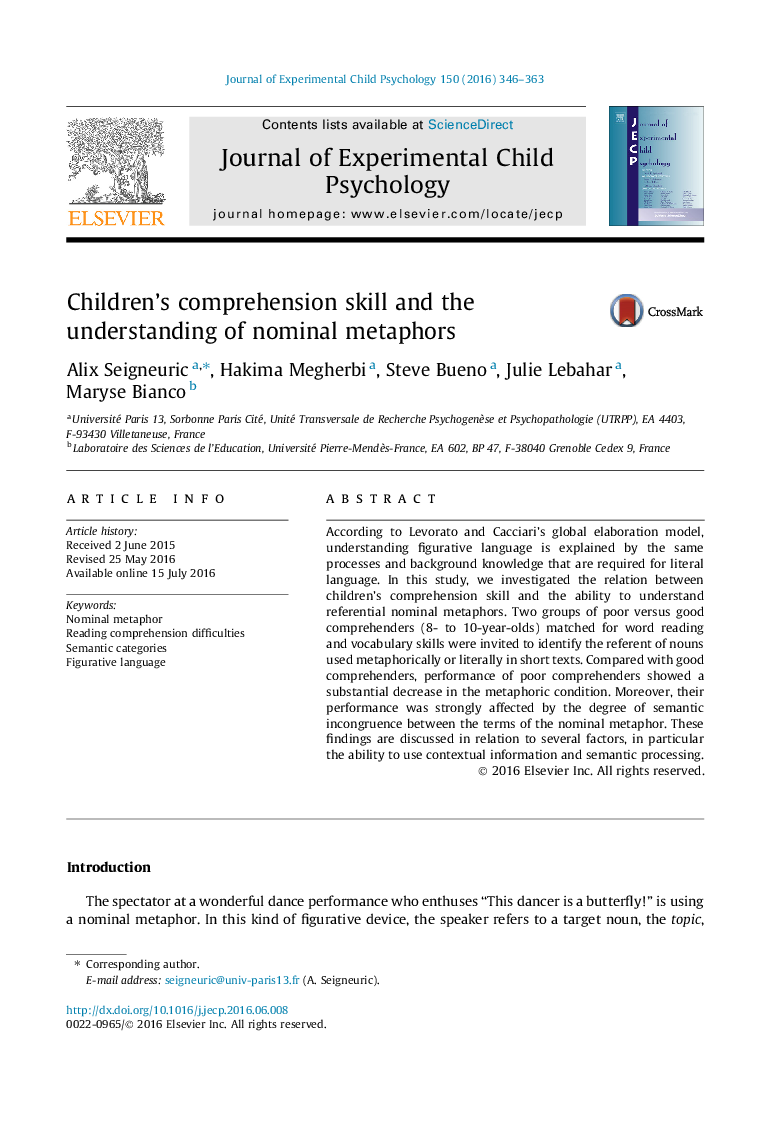| Article ID | Journal | Published Year | Pages | File Type |
|---|---|---|---|---|
| 7274558 | Journal of Experimental Child Psychology | 2016 | 18 Pages |
Abstract
According to Levorato and Cacciari's global elaboration model, understanding figurative language is explained by the same processes and background knowledge that are required for literal language. In this study, we investigated the relation between children's comprehension skill and the ability to understand referential nominal metaphors. Two groups of poor versus good comprehenders (8- to 10-year-olds) matched for word reading and vocabulary skills were invited to identify the referent of nouns used metaphorically or literally in short texts. Compared with good comprehenders, performance of poor comprehenders showed a substantial decrease in the metaphoric condition. Moreover, their performance was strongly affected by the degree of semantic incongruence between the terms of the nominal metaphor. These findings are discussed in relation to several factors, in particular the ability to use contextual information and semantic processing.
Related Topics
Social Sciences and Humanities
Psychology
Developmental and Educational Psychology
Authors
Alix Seigneuric, Hakima Megherbi, Steve Bueno, Julie Lebahar, Maryse Bianco,
